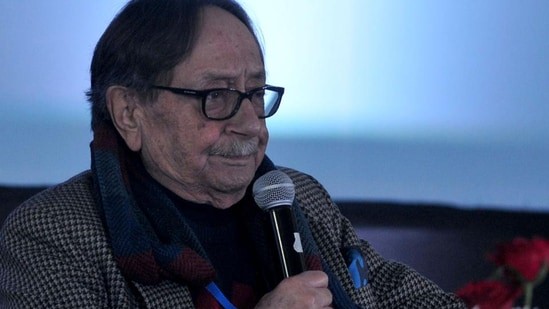Ex-RAW Chief AS Dulat: Major Misstep Behind India-US-Canada Diplomatic Crisis
“Someone has screwed up big time,” is the blunt assessment of Amarjit Singh Dulat, the former chief of India’s Research and Analysis Wing (RAW), on the rising tensions between the US, Canada, and India. The diplomatic storm was sparked by allegations against New Delhi for the killing of a Khalistani sympathizer in Canada and the attempted assassination of another in the US.
When asked to elaborate on who might be responsible for this diplomatic debacle, Dulat refrained from providing specifics, stating only that a significant mistake had occurred. His reticence to divulge further details only underscores the gravity of the situation and the potential embarrassment it holds for India.
Despite the turmoil, Dulat remains confident in the strength of the intelligence-sharing relationship between India and the US. He believes that this deep-rooted partnership will help contain the diplomatic fallout. Historically, Indo-US intelligence cooperation has been robust, with both nations benefiting from shared information on various security threats, including terrorism and espionage.
The diplomatic standoff reached a peak on October 14, when the Canadian government, led by Prime Minister Justin Trudeau, labeled the Indian High Commissioner and other diplomats as “persons of interest” in the murder investigation of Khalistani terrorist Hardeep Singh Nijjar, who was killed in June 2023. On the same day, the US State Department issued a statement concerning the attempted assassination of US-based Khalistani terrorist Gurpatwant Singh Pannun, only to retract it later. The synchronization of these moves by the US and Canada highlighted their cooperation, likely facilitated by their membership in the powerful “Five Eyes” intelligence alliance, which also includes the UK, Australia, and New Zealand.
Adding to the complexity of the situation, less than three weeks after being implicated by US Department of Justice documents as a co-conspirator in the Pannun case, Vikash Yadav, an Indian national accused of plotting Pannun’s murder, was dismissed from his position by the Indian government. This raised questions about whether Yadav might be extradited to the US, where he faces charges related to a “murder for hire” plot.
Dulat, however, deems such an extradition unlikely. He emphasizes that the resolution of this issue will likely occur at the diplomatic level, considering the close bilateral ties between India and the US. The intricate web of Indo-US relations, which encompasses not only intelligence sharing but also trade, defense, and strategic cooperation, makes a purely legalistic resolution improbable.
The broader concern, as highlighted by Dulat, is whether this incident will affect the robust intelligence-sharing framework between India and the US. He remains optimistic that the diplomatic channels will effectively manage the situation, preventing any significant disruption in intelligence cooperation. This assurance is vital, given that intelligence sharing between the two countries is the deepest in South Asia, playing a crucial role in regional security.
Dulat’s insights carry weight given his extensive background in intelligence. As a spymaster and former special director of the Indian Intelligence Bureau, Dulat served as the Secretary of RAW from 1999 to 2000. Post-retirement, he was appointed as an advisor on Jammu and Kashmir in the Prime Minister’s Office, a role he held from January 2000 to May 2004. His experience provides him with a unique perspective on the current crisis and its potential ramifications.
The tensions between India, Canada, and the US over the alleged targeted killings and assassination attempts involving Khalistani sympathizers are a complex interplay of diplomatic, legal, and intelligence dynamics. The situation underscores the challenges of navigating international relations in the face of accusations that touch on national sovereignty, legal jurisdiction, and bilateral ties.
India’s position, as articulated by its diplomats and leaders, is to maintain that it operates within the bounds of international law and expects its partners to do the same. However, the allegations have created a narrative of mistrust that both Canada and the US seem to be entertaining, at least to some extent, as evidenced by their coordinated actions.
For now, the diplomatic machinery of all three countries will likely be in overdrive, seeking to de-escalate the situation and find a resolution that maintains their respective national interests while preserving their bilateral and multilateral relationships. The role of intelligence agencies in this diplomatic dance will be crucial, as they provide the necessary information to support diplomatic negotiations and ensure national security.
In conclusion, Dulat’s assertion that “someone has screwed up big time” encapsulates the gravity and complexity of the situation. It serves as a reminder of the delicate balance in international relations, where a single misstep can have far-reaching consequences. The resolution of this crisis will depend on the diplomatic finesse and the resilience of the intelligence-sharing frameworks that bind these nations together.

